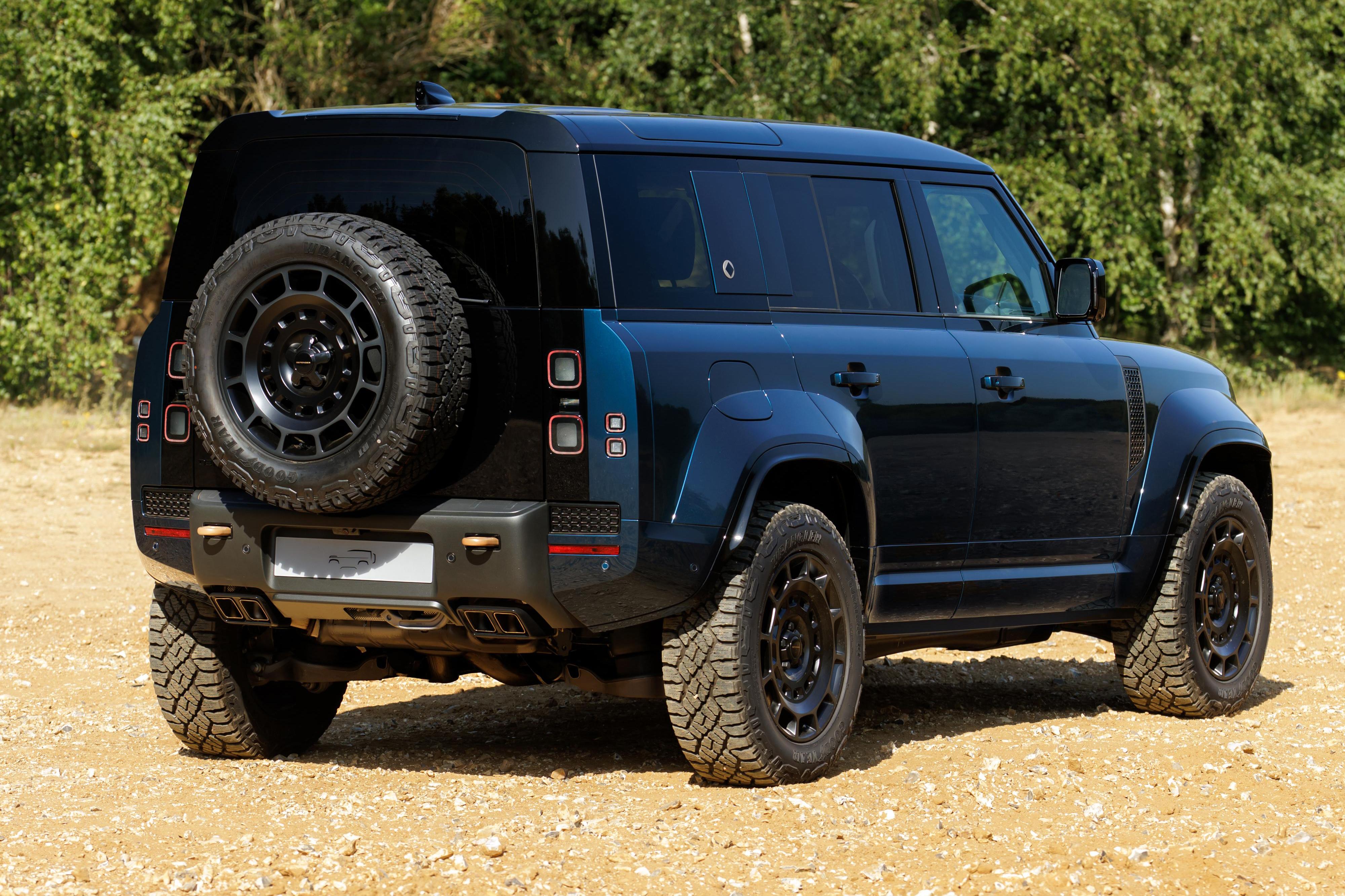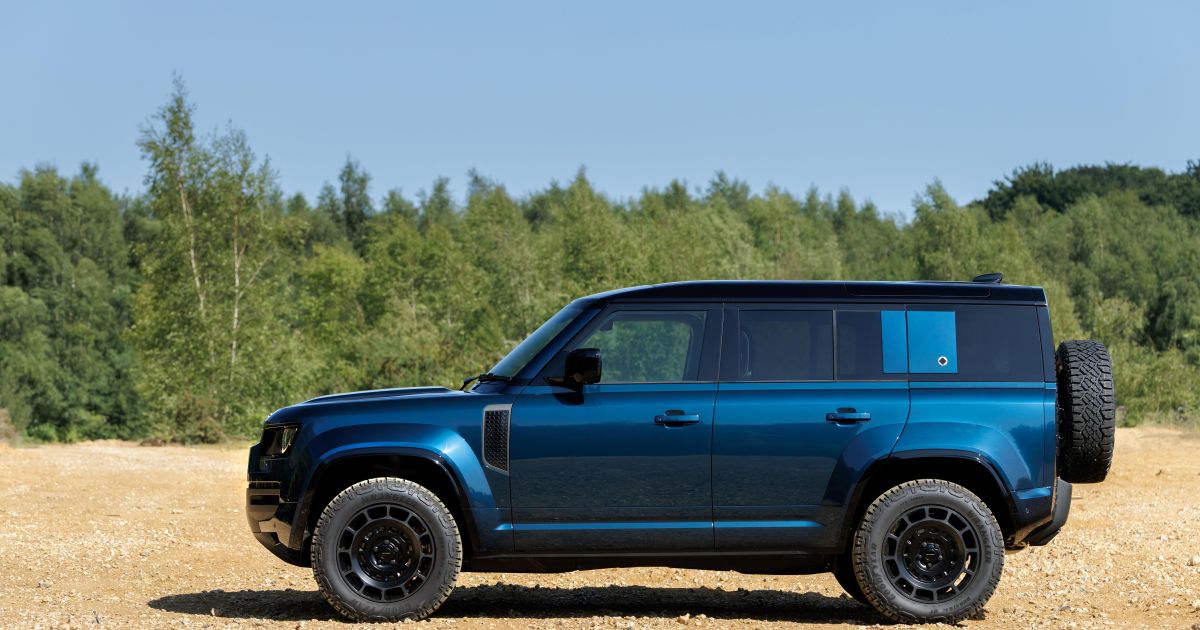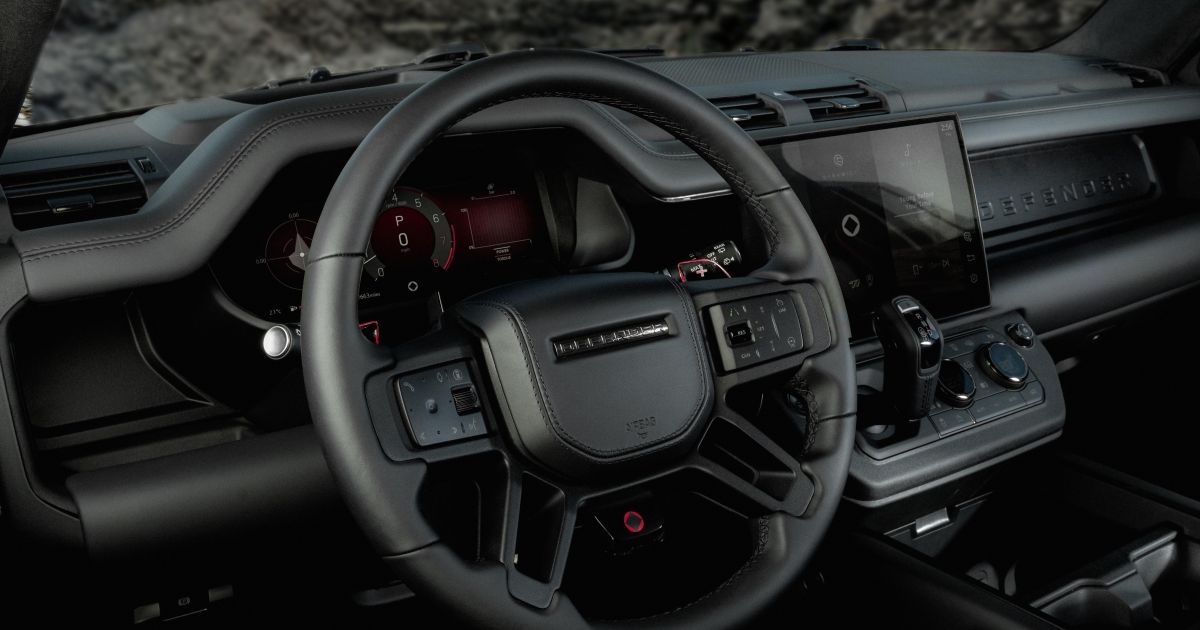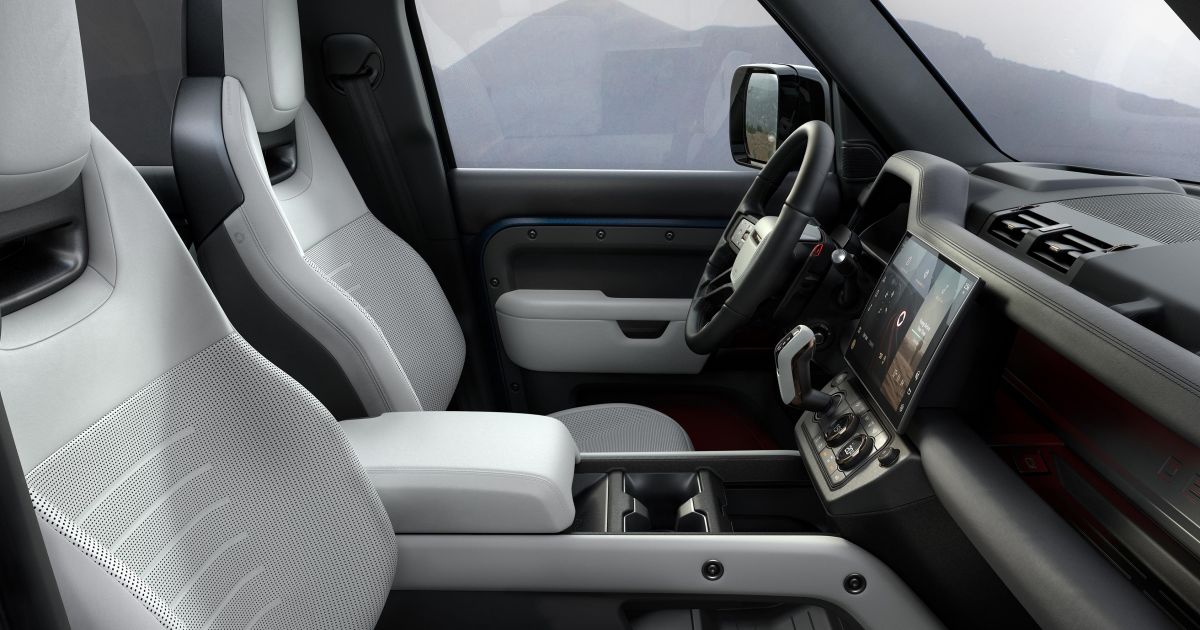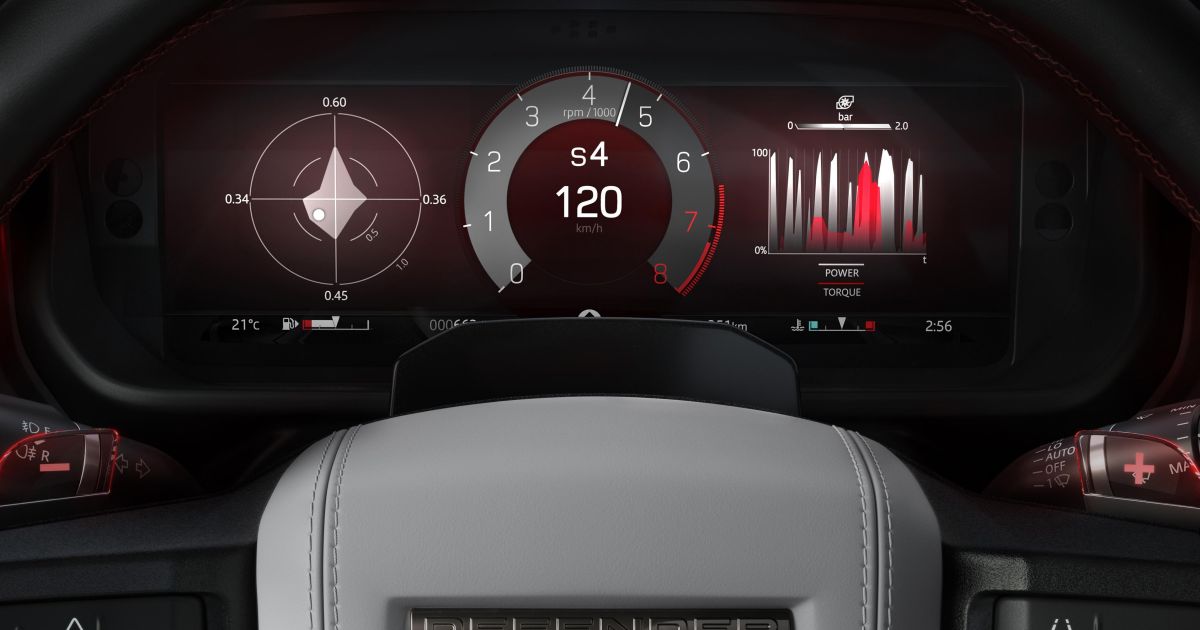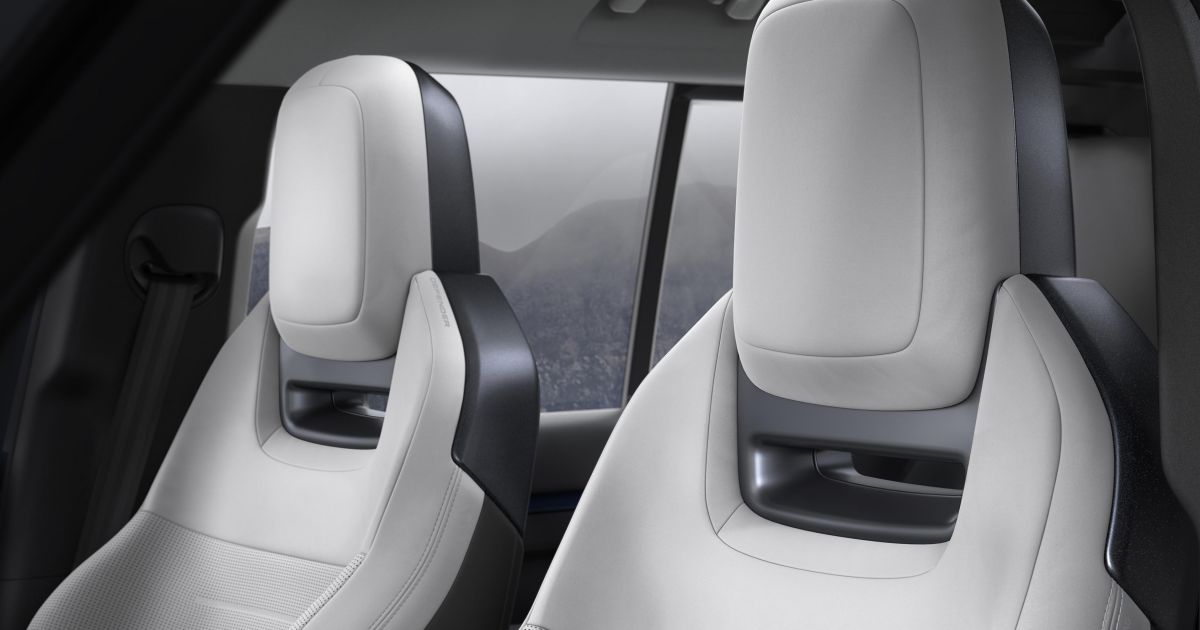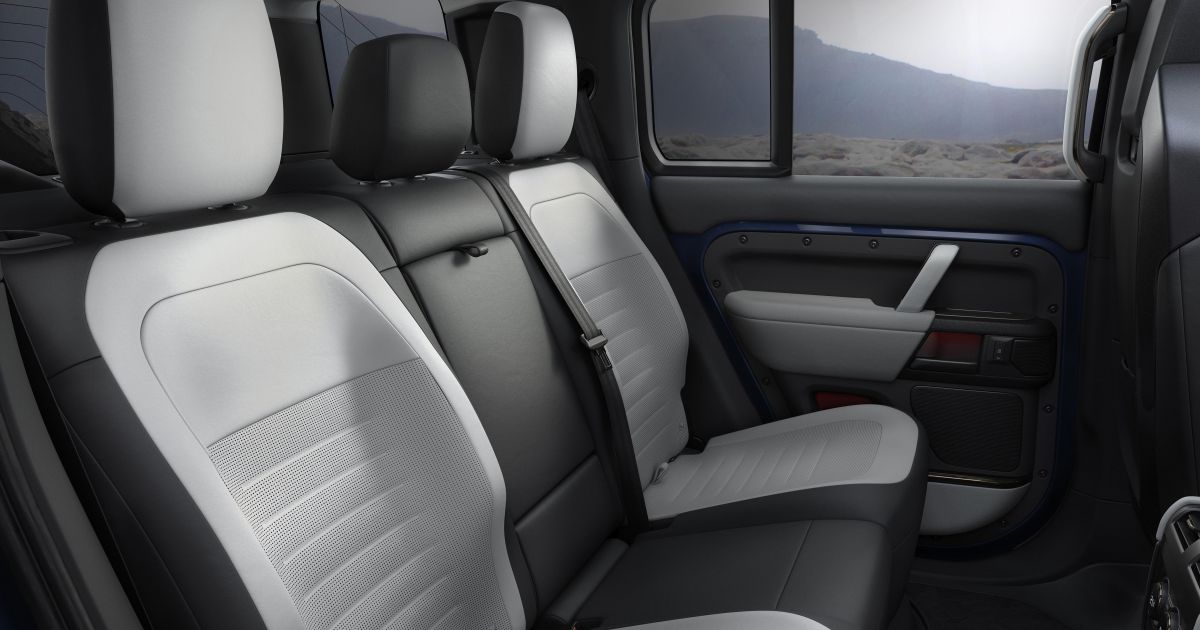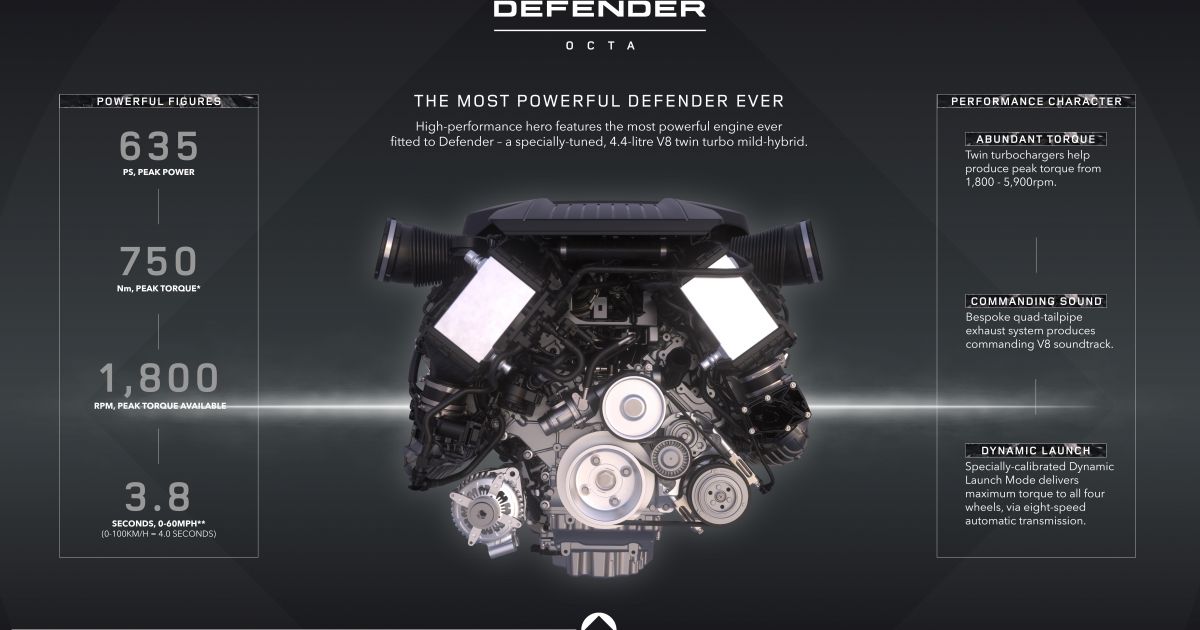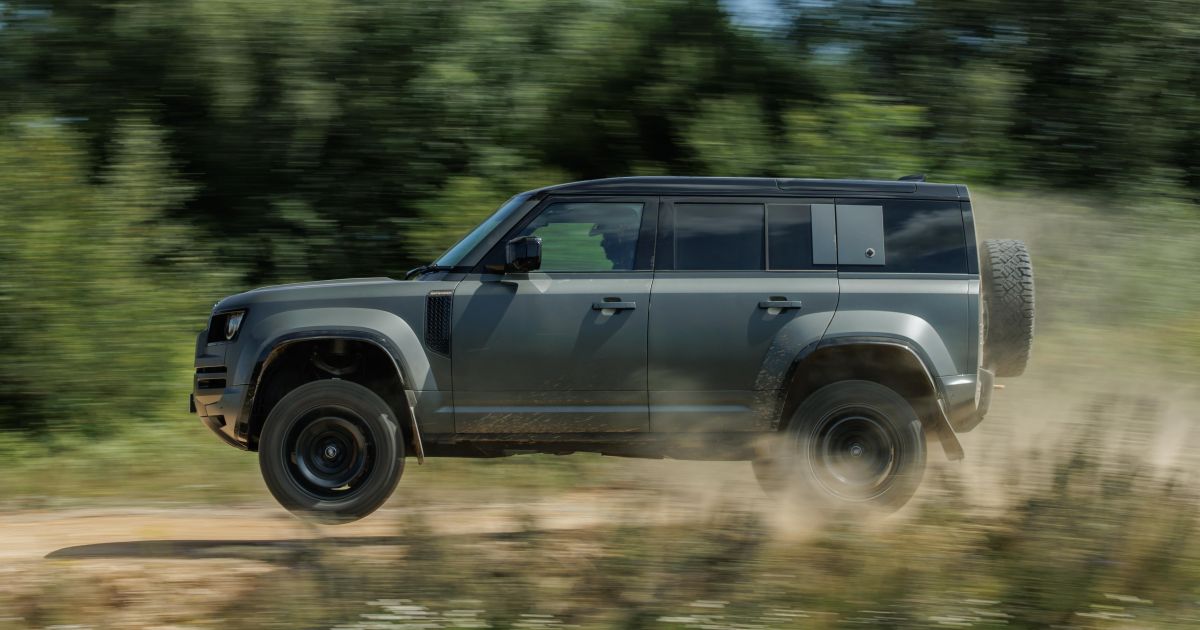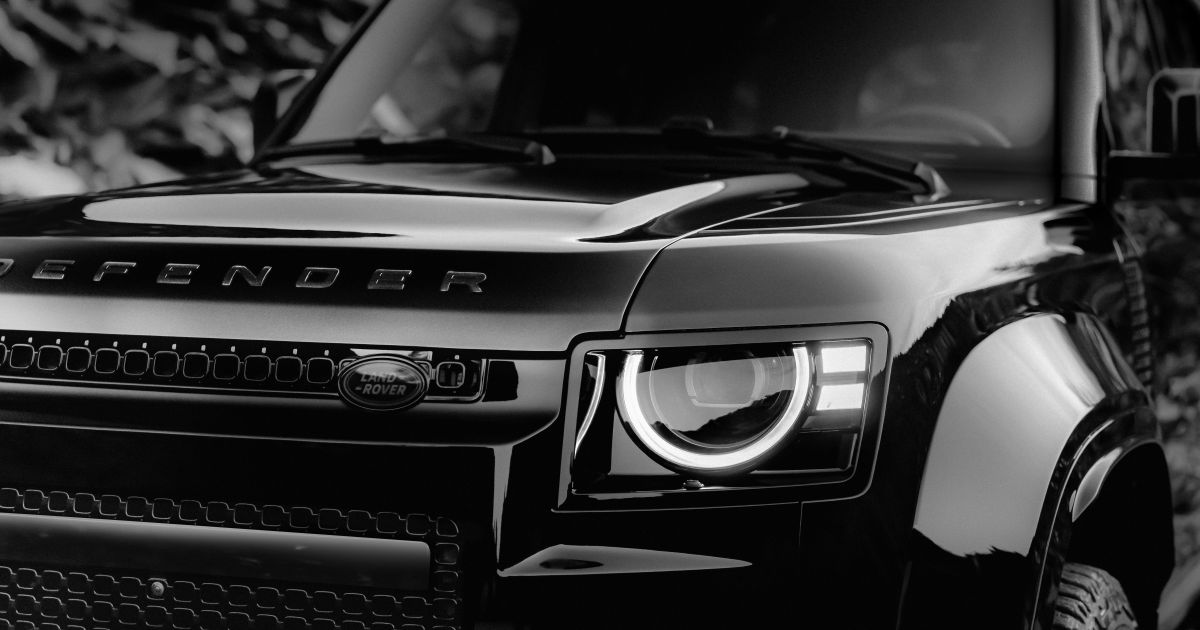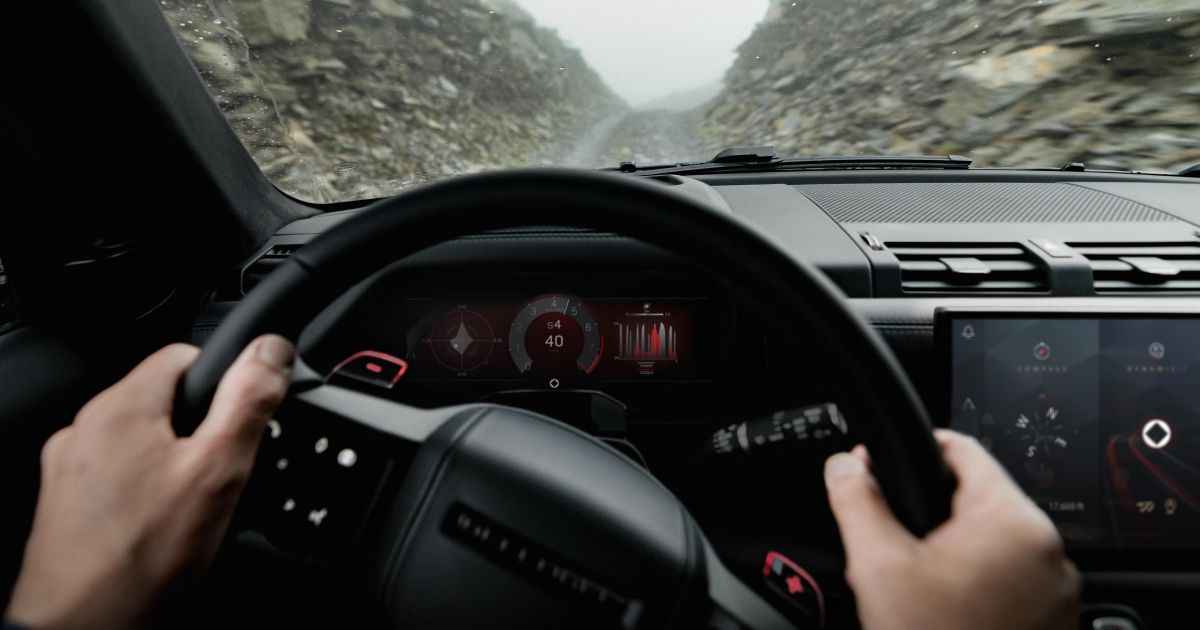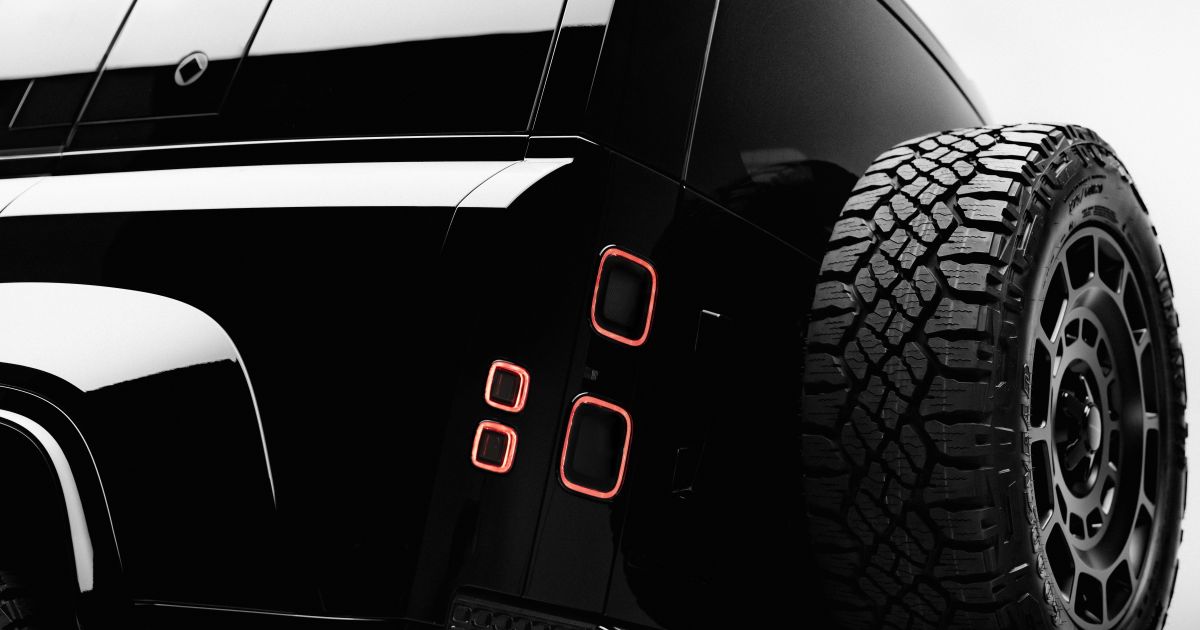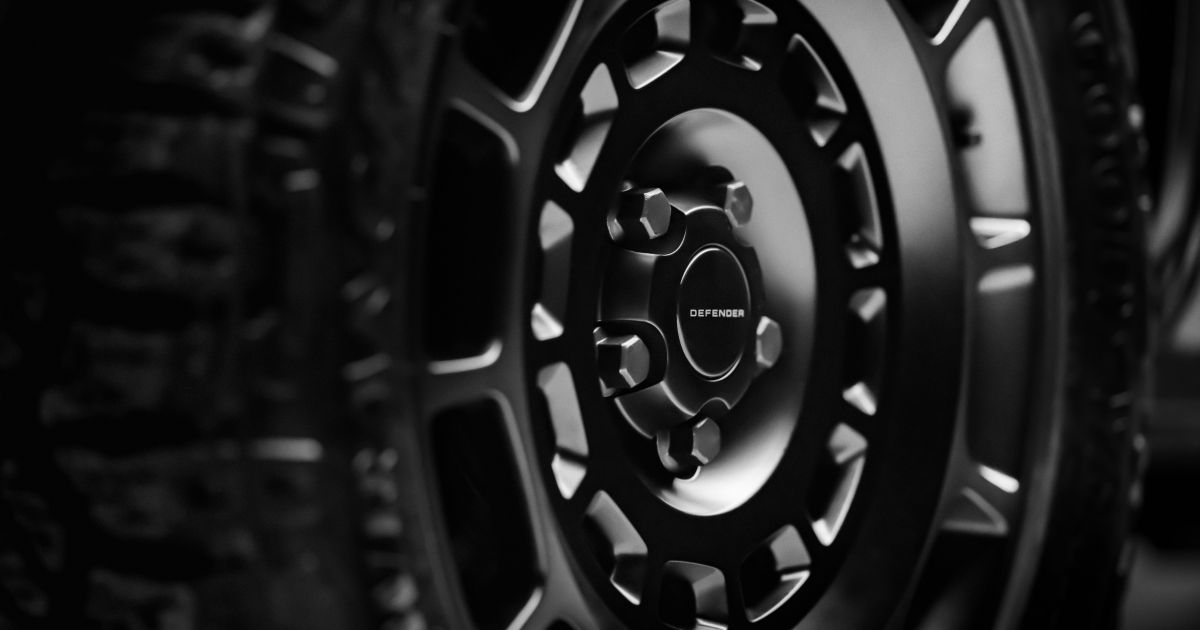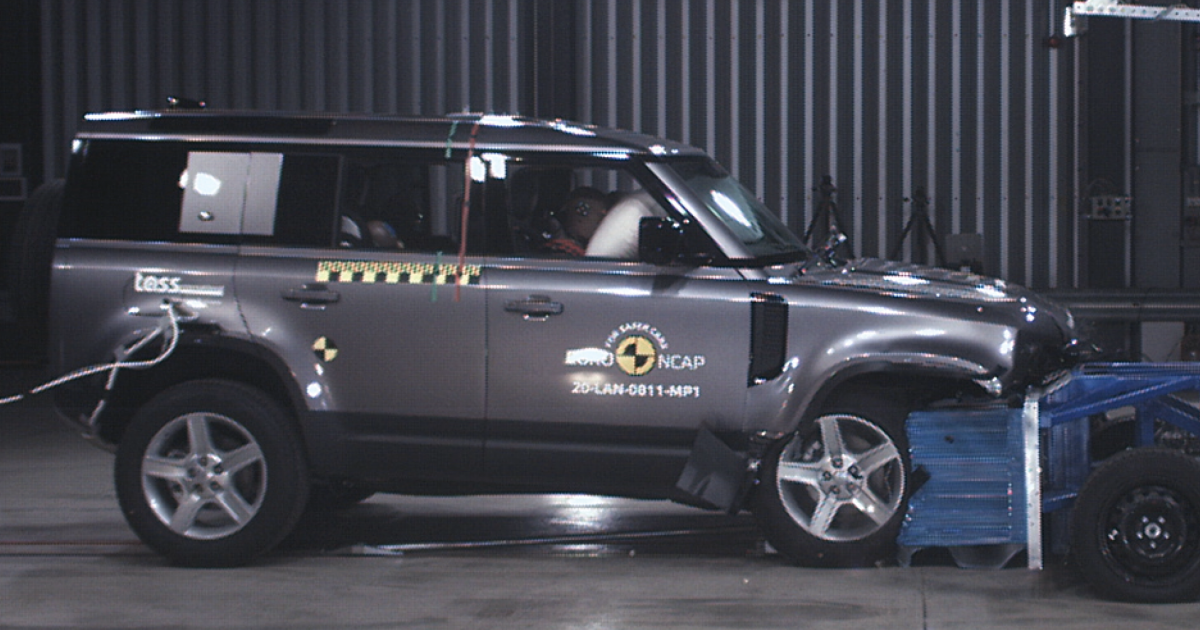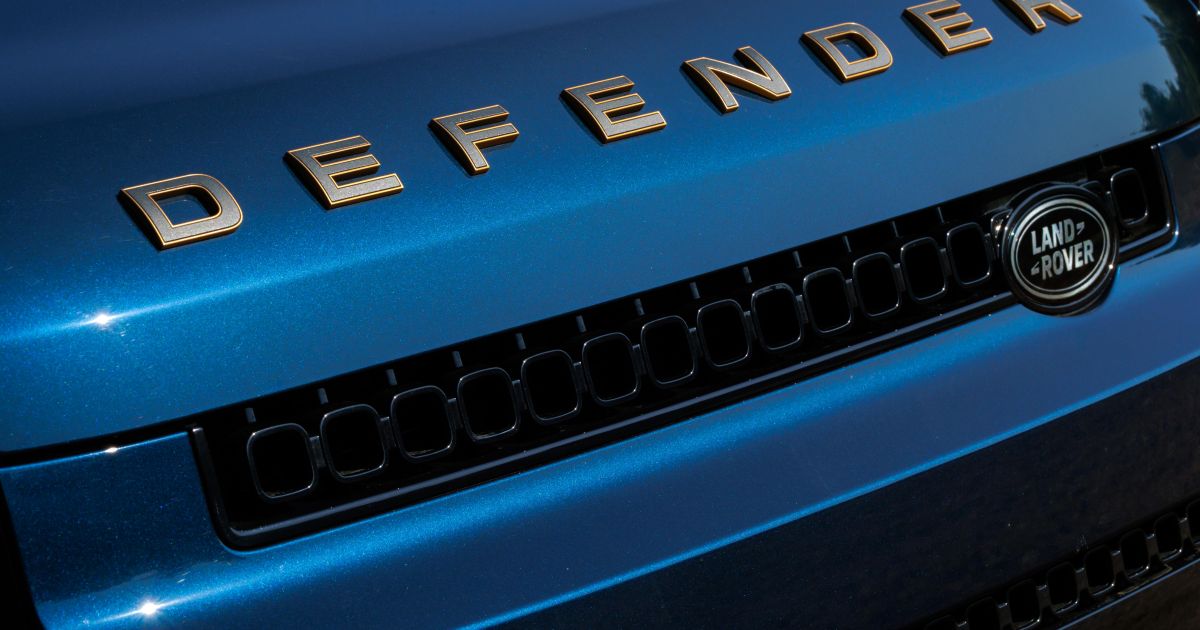In the world of luxury there are two known truths: you can’t buy heritage, and you can’t buy brand credibility.
Both attributes come with time and consistency. It’s much the same in the high-end of the automotive world, where it’s as much about being part of that brand’s story as the product itself. It’s what the car says about you, rather than what it can do.
Take the Mercedes-Benz G-Wagen, an icon of the times that has earnt its place in history, starting out as a desire from the Shah of Iran to the modern-day choice of those that wish to make a statement.
It’s virtually impossible for a new brand to create anything like the G-Class. It would need decades of heritage and history, and it would need an unshakeable reputation for its off-road credentials and toughness. So it could only really be a Defender. In fact, now that it has happened, it’s crazy to think how long it took Land Rover to create a true G-Wagen competitor, but it is finally here.
Of course the folks at Land Rover say the new Defender OCTA is not a G-Wagon competitor (because – they claim – it’s just so much more capable) but given it’s pretty much priced bang on G-Wagon money, comes with a twin-turbo V8, and can take your kids to school or climb a mountain, the product brief is near identical. But is it any good? We flew to England to test the new Land Rover Defender OCTA on some ridiculous off-road courses and got to spend time driving it along British countryside.
First things first, the Defender OCTA (with a name inspired by the octahedral shape of a diamond) looks tough as hell. Sitting on 33-inch all-terrain tyres, the body gets new grille designs, a new rear bumper with quad exhausts, underbody protection, and exposed Phosphor Bronze-finished front and rear recovery points.
It doesn’t quiet have the same imposing stance as a G Wagon and the fact that there are significantly ‘lesser’ Defender models in the range, does bring into question whether the OCTA can stretch the brand that high (whereby a G63 is an instant object of desire), but so far, high demand for the OCTA suggests it has found its audience.
The OCTA sits 28mm higher and has a 68mm wider stance than the standard Defender, making it stand out compared to the base SUV. Off-road upgrades also include unique to the new grade active dampers, the fastest steering ratio of any Defender to date, and OCTA Mode – a performance-focused off-road setting with specially-honed anti-lock braking and launch control calibration. Yes, a Land Rover Defender has launch control.
The folks at Land Rover set out to make the Defender OCTA blend extreme off-road capability with genuine on-road performance. This is historically the domain of the G-Wagon but after our few hours with the car we feel that the Defender OCTA is not only more capable off-road, but also on-road.
How much does the Land Rover Defender cost?
For the MY26 model year, the 2026 Defender P635 OCTA comes in at $304,500 before on road costs or any options.
2025 Defender 90
| Model | Price |
|---|---|
| Defender 90 D250 S | $92,402 |
| Defender 90 P400 X | $155,949 |
| Defender 90 P525 V8 | $192,373 |
2025 Defender 110
| Model | Price |
|---|---|
| Defender 110 P400 S | $94,992 |
| Defender 110 D250 Hard Top S | $106,232 |
| Defender 110 D350 X-Dynamic SE | $109,880 |
| Defender 110 P400 X-Dynamic SE | $115,250 |
| Defender 110 D350 X-Dynamic HSE | $125,125 |
| Defender 110 P400e X-Dynamic SE | $126,800 |
| Defender 110 P400 X-Dynamic HSE | $129,900 |
| Defender 110 D350 Sedona Edition | $135,791 |
| Defender 110 P400e X-Dynamic HSE | $138,705 |
| Defender 110 D350 X | $158,627 |
| Defender 110 P400 X | $159,945 |
| Defender 110 P525 V8 | $199,999 |
| Defender P635 OCTA (MY26) | $304,500 |
2025 Defender 130
| Model | Price |
|---|---|
| Defender 130 D350 X-Dynamic SE | $130,450 |
| Defender 130 P400 X-Dynamic SE | $134,556 |
| Defender 130 P400 Outbound | $136,647 |
| Defender 130 P500 V8 | $217,282 |
This is a significant $177,400 more expensive than the cheapest new MY26 Defender P425 X (Dynamic SE $127,100) which now uses the 5.0-litre supercharged V8 that we all love. Essentially you can buy two Defender’s with the 5.0-litre supercharged V8 instead of an OCTA and still have change left over.
To see how the Land Rover Defender lines up against its rivals, check out our comparison tool
What is the Land Rover Defender like on the inside?
As with all 2026 Defender models, the OCTA now has a larger 13.1-inch infotainment touchscreen, up from 11.4 inches, while the dash-mounted shifter has been repositioned.
In addition, a revised centre console incorporates a sliding section that allows you to conceal small items in a closed cubby, while removable side pockets are available. You can have your OCTA’s interior in leather or fabric, with Burnt Sienna leather equipped as standard. An Ebony leather interior is also available, as are Light Cloud and Lunar fabric options.
It’s a nice place to sit but the substantial price increase over the standard Defender variants is not felt on the inside as much as one might hope.
We found the sound system and general cabin ergonomics to be ideal and using the screen in the car to navigate the different drive modes to be a breeze (even if we would prefer a physical button for some of the controls). The OCTA button on the steering wheel is a nice touch and is very much borrowed from the Range Rover Sport SV. Press it and things start to get serious.
The media controls are simple to learn and navigate, which is helped by the crisp and responsive new touchscreen. Also worth noting that Land Rover has no issue providing the pilot a whole plethora of information – including off-road cameras for underneath the car, whether the centre or rear differential is locked, how much load is on each airbag shock absorber, and other stuff like vehicle dimensions.
The usual stuff like wireless smartphone mirroring technology (Apple CarPlay and Android Auto) worked pretty well during our time with the car.
There is no noticeable compromise in going for an OCTA over a standard Defender in terms of space and practicality. One thing that affects all Defender (and G-Wagon) models is the side-swinging tailgate, which is heavy to operate and frankly a little annoying at times.
We know the British love their subtelty but it would be nice if there was some more uniqueness to the OCTA’s interior to give it that super premium feel the price tag demands. Nonetheless, it’s just as nice a place to sit as a G-Wagon with arguably more usable tech and better infotainment system.
| Dimensions | Land Rover Defender OCTA |
|---|---|
| Length | 4813-5003mm (with spare wheel) |
| Width | 2105mm (including mirrors) |
| Height | 1995mm |
| Wheelbase | 3023mm |
| Cargo capacity | 972-2277L |
To see how the Land Rover Defender lines up against its rivals, check out our comparison tool
What’s under the bonnet?
In order to truly compete with the G Wagon and become the performance powerhouse in the Defender range, the OCTA could not make use of the company’s ageing 5.0-litre supercharged V8, but has instead gone with a BMW-sourced 4.4-litre twin-turbo V8 with a 48V mild-hybrid system as its heart.
| Specifications | Land Rover Defender OCTA |
|---|---|
| Engine | 4.4L twin-turbo MHEV V8 |
| Power | 467kW |
| Torque | 750Nm |
| Transmission | 8-speed automatic |
| Drive type | All-wheel drive |
| Weight | TBC |
| 0-100km/h (claimed) | 4.0 seconds |
| Fuel economy (claimed) | 13.1L/100km |
| Fuel tank capacity | 90L |
| Fuel requirement | 98-octane premium unleaded |
| CO2 emissions | 298g/km |
| Braked tow capacity | 3500kg |
Mated to an eight-speed automatic transmission with high and low range gears, the BMW M5-sourced engine – which also powers the Range Rover Sport SV – produces 467kW of power and 750Nm of torque.
This makes the OCTA the most powerful Defender ever, as well as the fastest-accelerating, completing the 0-100km/h sprint in just under 4.0 seconds.
The fact that the British brand now offers the original supercharged V8 in the Defender makes this BMW engine seem overly excessive for the price differential, but it’s certainly a far more modern and performance orientated powertrain than anything ever offered in the Defender range.
To see how the Land Rover Defender lines up against its rivals, check out our comparison tool
How does the Land Rover Defender drive?
The Land Rover Defender OCTA sits in a unique place where it’s as quick as more modern dedicated sports cars yet it can also get serious off-road.
We go to experience the OCTA perform some incredibly challenging off-road courses where it proved itself more capable than the standard Defender (unless the extra width will get you stuck in smaller trails) then we performed a high speed jump over a ramp as part of a dedicated rally track and if that wasn’t impressive enough, we drove it on the road at full pace.
At each and every one of those tasks the Land Rover Defender OCTA exceeded our expectations. Its off-road credentials don’t need any validation, it’s a Defender after all, but it was the on-road driving that truly impressed us.
This is a much nicer car to drive at speed than a G63 AMG. It sits nicer on the road, doesn’t feel as agricultural and certainly corners better. In saying all that, it has virtually no exhaust noise. The modern day European emissions and regulations have made this high performance engine rather silent.
If you love your angry V8 sound – and you would have to in order to spend this much on a Defender – we suggest a trip to an aftermarket supplier to remove the petrol particulate filters and replace the exhaust with something that brings the car to life. Because it needs it.
Behind the wheel and around the countryside near Goodwood, we found the Defender OCTA to be comfortable and relaxed in standard mode and then get low and responsive with all inputs when OCTA mode was selected.
Ultimately, it’s not the sort of car you would enjoy driving at speed around twisty mountain roads if you didn’t have to, but with the right tyres and in the right setting, it can be an reasonable experience and certainly more surefooted than its Mercedes competitor.
| Off-road dimensions | Land Rover Defender OCTA |
|---|---|
| Track front and rear | 1772mm front, 1768mm rear |
| Ground clearance | 323mm |
| Approach angle | 40.2 degrees |
| Departure angle | 42.8 degrees |
| Ramp breakover angle | 29 degrees |
| Wading depth | 1000mm |
To see how the Land Rover Defender lines up against its rivals, check out our comparison tool
What do you get?
The Defender OCTA gains a comprehensive set of upgrades, inside and out.
2026 Land Rover Defender OCTA equipment highlights:
- 6D Dynamics air suspension
- Faster steering ratio
- Launch control
- 33-inch all-terrain tyres
- Unique rear bumper
- Quad exhaust outlets
- Underbody protection
- Burnt Sienna leather upholstery
- Front performance seats with ‘immersive’ audio
To see how the Land Rover Defender lines up against its rivals, check out our comparison tool
Is the Land Rover Defender safe?
The Land Rover Defender 110 scored a five-star safety rating based on testing in 2020 by Euro NCAP, although that rating doesn’t apply to V8 petrol variants, presumably including the new OCTA.
Standard safety equipment includes:
- Autonomous emergency braking
- Blind-spot monitoring
- Lane-keep assist
- Rear cross-traffic alert
- Adaptive cruise control
- Driver attention monitoring
- Surround-view camera system
- Front, rear parking sensors
- Safe exit alert
- Traffic sign recognition
There is a helpful system to lessen the sensitivity of the safety features quickly and easily – just push a button on the steering wheel and you can set the safety systems to have moderate or minimal intervention.
Dual frontal, front side, and side curtain airbags for all three rows are standard too.
To see how the Land Rover Defender lines up against its rivals, check out our comparison tool
How much does the Land Rover Defender cost to run?
There’s a five-year/unlimited-kilometre warranty, which you might find to be an important consideration for the Defender as the reliability record for this vehicle has been questionable. In fact, if you do intend to keep it longer, extender warranty options should absolutely be considered.
| Servicing and Warranty | Land Rover Defender OCTA |
|---|---|
| Warranty | 5 years, unlimited kilometres |
| Roadside assistance | 5 years |
| Service interval | 1 year or 26,000km |
| Capped-price servicing | 5 years |
| Average annual service cost | $960 |
| Total capped-price service cost | $4800 |
There’s also five years of roadside assistance as part of that warranty cover, which we hope you won’t ever need to use.
To see how the Land Rover Defender lines up against its rivals, check out our comparison tool
CarExpert’s Take
Chances are if you can afford a Defender OCTA and had wanted a Mercedes-Benz G-Wagon you would have already bought one by now, in fact you might already own one and thinking of something a little different, perhaps with less undesired social connotations.
No matter how you try and look at it, this is the most capable Defender ever and it needs to be for the price. It’s fast, its capable and it can virtually go anywhere within reason.
This is what you buy if you want the best Defender in the range, but as we said earlier, as good as it is, it makes the supercharged V8 Defender P425 seem like an absolute bargain.
Interested in buying a Land Rover Defender? Let CarExpert find you the best deal here
Click the images for the full gallery

